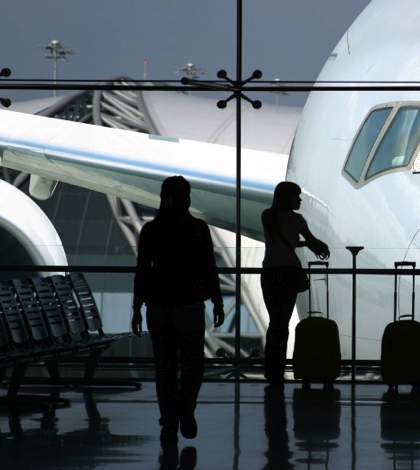Ontario will have to do more than gain control of Ontario International Airport in order to make that facility profitable again, according to a local economist.
Manfred W. Keil, an associate professor of economics at Claremont McKenna College, told a crowd of 700 business leaders and public officials Thursday that other smaller airports in the United States suffered drops in passenger traffic during the recession similar to what happened at Ontario International.
“My message to Ontario is that they can’t blame everything that has gone wrong at the airport on the city of Los Angeles,” said Keil, one of several speakers at the Sixth Annual Inland Empire Economic Forecast Conference.
The conference was sponsored by the Lowe Institute of Political Economy and the Rose Institute of State and Local Government, both at Claremont McKenna College, and the UCLA Anderson Forecast.
“If they want to solve their problems, they’re going to have to think outside the box.”
Traffic at the airport, which is owned by the city of Los Angeles, dropped during the recession to levels not seen since the mid-1980s. Ontario officials blamed that decline on neglect, and accused Los Angeles World Airports, the city agency in charge of the airport, of bypassing Ontario International in favor of Los Angeles International Airport, which it also owns.
In August, Los Angeles agreed to hand over control of Ontario International to Ontario, a move that won’t become official until sometime next year.
Nine other U.S. airports similar in size to Ontario International that are also close to larger airports suffered fate similar to Ontario International during the recession, Keil said.
“In every instance the larger airport added passengers,” Keil said while speaking with reporters after delivering his formal remarks. “Los Angeles probably had something to do with what happened at Ontario [International], but it’s not the whole story.”
Keil’s comments were part of a wide-ranging, two-hour discussion on the state of the local and U.S. economies at Citizens Business Bank Arena.
The U.S. economy could suffer another recession in the immediate future, but if that happened it would likely happen from outside sources and not be caused internally, said Edward E. Leamer, a professor of management, economics and statistics at UCLA.
“We don’t see anything happening in the U.S. now that would cause a recession,” said Leamer, who is also director of the Anderson Forecast. “We’re also calling for more inflation as we move forward, which is where we’re sticking our neck out a little.”
Politicians in Washington. D.C., aren’t doing enough to help small to medium-sized businesses, said Melissa Francis, an anchor with the Fox Business Network and the forecast’s featured speaker.
“What is going on is really out of whack,” Francis said. “They’re raising taxes on small to medium-sized businesses, which is ridiculous because they’re the job creators.”
 IE Business Daily Business news for the Inland Empire.
IE Business Daily Business news for the Inland Empire.


